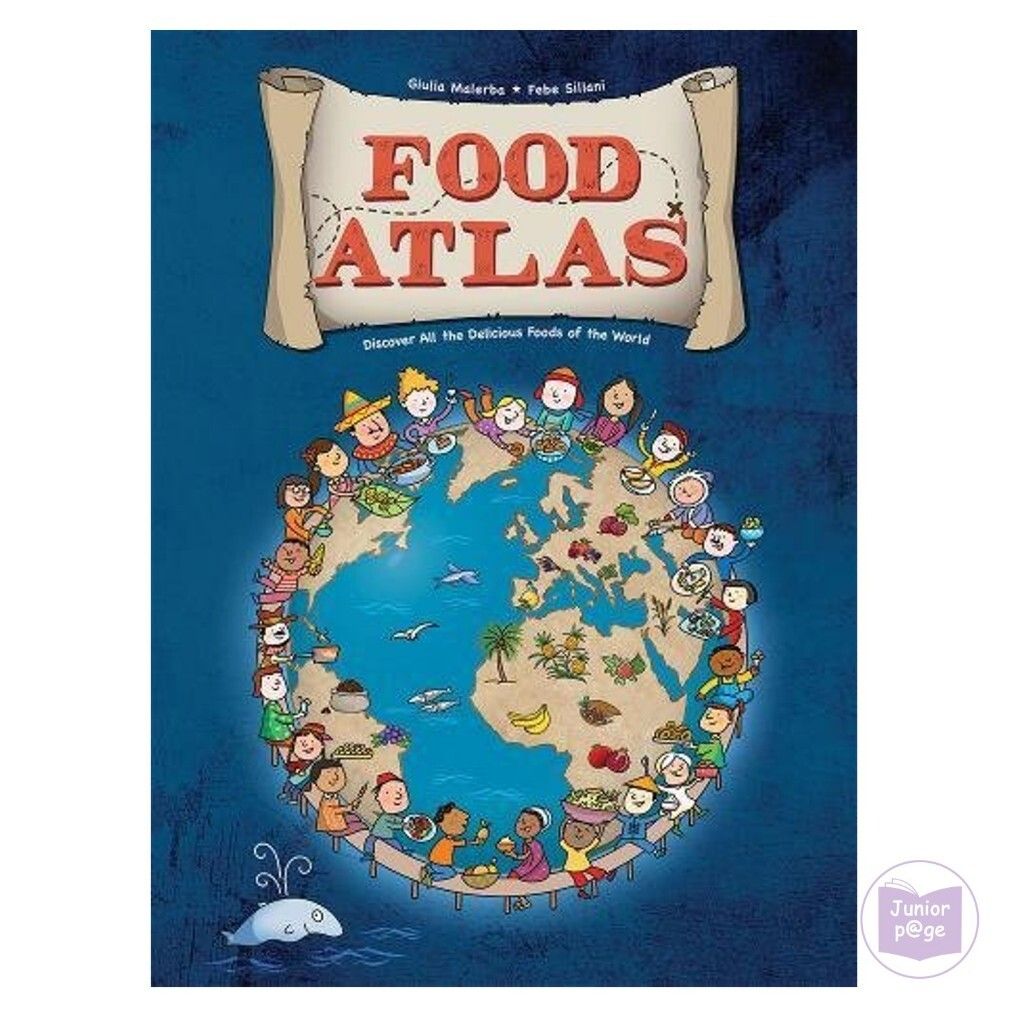Food Atlas: Discover All the Delicious Foods of the World
- Regular price
- S$ 19.90
- Regular price
-
S$ 0.00 - Sale price
- S$ 19.90
Share
An exciting visual journey around the world of foods and flavors.
Food Atlas takes readers on a global discovery tour of the ingredients, dishes, and culinary curiosities that characterize the world's continents. The book features appealing illustrations and concise captions organized into 39 regional maps that focus on one country.
The book opens with a world map showing the six continents and 50 countries. The featured countries are:
North America -- Canada, United States, Mexico
South America -- Peru, Ecuador, Brazil, Argentina, Chile
Europe -- Great Britain (and Ireland), Norway, Sweden, Finland, Netherlands, Germany, Poland, Hungary, France, Italy, Spain, Portugal, Greece
Asia -- Russia, Lebanon, Turkey, China, Indonesia, Vietnam, Thailand, Japan, South Korea, India
Africa -- Morocco, Egypt, Angola, South Africa, Madagascar
Oceania -- Australia, New Zealand, Fiji Islands.
Each chapter opens with a continent map showing the countries, each with a selected food or ingredient of importance and introductory text.
Every country map has a brief introduction outlining the most important features of the cuisine and culture of food, such as late night meals or traditional morning beverages.
The most important foods grown or produced in that country are illustrated within its borders.
Local and specialty dishes and beverages that make up the country's cuisine fill the rest of the page.
Sometimes a food ingredient is shown in a specific place; e.g., the Khasi mandarin in India's Meghalaya region, which is where it and all other citrus fruits originated; or ostrich eggs in Southern Africa, where the bird lives in savannah and desert habitats.
Oceans and seas show marine animals that add to the country's diet.
The book closes with a world map that shows how explorers carried some of the world's most widely eaten foods from their land of origin to new lands, where they now fill grocery stores and markets around the world; e.g. rice and citrus came from China; coffee from Ethiopia; black pepper from Vietnam; and so on for all 23 world-traveling foods.
Food Atlas takes readers on a global discovery tour of the ingredients, dishes, and culinary curiosities that characterize the world's continents. The book features appealing illustrations and concise captions organized into 39 regional maps that focus on one country.
The book opens with a world map showing the six continents and 50 countries. The featured countries are:
North America -- Canada, United States, Mexico
South America -- Peru, Ecuador, Brazil, Argentina, Chile
Europe -- Great Britain (and Ireland), Norway, Sweden, Finland, Netherlands, Germany, Poland, Hungary, France, Italy, Spain, Portugal, Greece
Asia -- Russia, Lebanon, Turkey, China, Indonesia, Vietnam, Thailand, Japan, South Korea, India
Africa -- Morocco, Egypt, Angola, South Africa, Madagascar
Oceania -- Australia, New Zealand, Fiji Islands.
Each chapter opens with a continent map showing the countries, each with a selected food or ingredient of importance and introductory text.
Every country map has a brief introduction outlining the most important features of the cuisine and culture of food, such as late night meals or traditional morning beverages.
The most important foods grown or produced in that country are illustrated within its borders.
Local and specialty dishes and beverages that make up the country's cuisine fill the rest of the page.
Sometimes a food ingredient is shown in a specific place; e.g., the Khasi mandarin in India's Meghalaya region, which is where it and all other citrus fruits originated; or ostrich eggs in Southern Africa, where the bird lives in savannah and desert habitats.
Oceans and seas show marine animals that add to the country's diet.
The book closes with a world map that shows how explorers carried some of the world's most widely eaten foods from their land of origin to new lands, where they now fill grocery stores and markets around the world; e.g. rice and citrus came from China; coffee from Ethiopia; black pepper from Vietnam; and so on for all 23 world-traveling foods.
×
×




